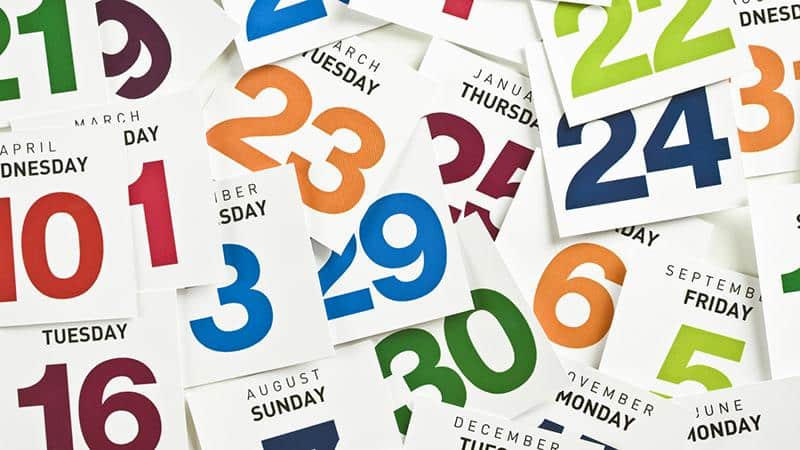The number of people with a credit burden in our country is constantly increasing. This is due to the low level of regular income in the form of income and the unavailability of some goods and services. The financial illiteracy of the population, which does not want to think and earn money, but prefers to have everything at once, also leaves its mark. As a rule, you have to pay for a long time and in large amounts, especially if we are talking about a bank loan. It’s one thing when everything is fine with money: you pay and forget.
Another thing is when the financial situation changed, and the bank was forced to transfer the case to third parties - collectors. Can collectors call on weekends, and what rights are vested in such services in principle - all this will be discussed in the material.
Collection services are often very annoying
What are collectors entitled to in 2020?
- Calls no more than once every 24 hours, with no more than 2 calls per week. In a month, the creditor can call the debtor up to 8 times.
- The creditor is allowed to send text messages to the debtor asking him to pay off the debt. The number of such messages should not exceed double the norm from calls. That is, it will be possible to send 2 messages per day, 4 per week and 16 per calendar month.
- The frequency of personal meetings between the creditor and the debtor should not exceed 1 time per week.
- All types of interaction – calls, messages, visits – are subject to time limits. On weekdays - from 8 to 22 hours, on weekends - from 9 to 20 hours. The local time of the region where the debtor is located is taken into account, not the creditor.
- At each contact, the creditor’s representative must introduce himself and state the purpose of the call. It is unacceptable to hide return contact information from the debtor.
Perhaps something will change in the future, but for now we will answer the question of whether debt collectors can come home in the affirmative. Like any other person, they can come to your address and ring the doorbell. Not more. An attempt to enter a home is a criminal offense, which collectors are well aware of. Whether collectors can come home is as popular a question as questions regarding how long the work of collectors with the debtor can continue, and what actually happens next.
Who should you not call?
There are categories of citizens who are prohibited from calling. These include:
- Patients undergoing treatment in a hospital.
- People for whom bankruptcy proceedings have been initiated.
- Minors (except emancipated), incompetent and partially capable citizens.
- Disabled people of group 1.
- Debtors who have warned debt collectors that all communications must be conducted only through an authorized attorney.
Also, any debtor has the right, after 4 months of delay, to write a statement of refusal to cooperate. It is drawn up in the form approved by FSSP Order No. 20 dated January 18, 2018. You can find the form on the official website of this organization. If there is such a statement, collectors lose the right to communicate with the debtor.
If the client is in arrears for a period of less than 30 calendar days, neither the creditor nor the collector can require him to pay the debt in the manner established by Law N 230-FZ. Thus, if you are 29 days late, you may still not receive calls, but from the 30th day onwards, calls will definitely begin.
The same applies to borrowers whose original loan agreement has not yet expired. Let's say the loan was issued for one year, during the first half of the year the borrower steadily contributed money towards the monthly payment, and from the second half of the year the payments stopped. Then, despite the overdue period of more than 30 days, interaction between collectors or creditors with the borrower is not allowed. When the period of validity of the contract, indicated in it itself, comes to an end, actions of this kind will become legal.
And we separately note that clause 1, pp. 2 tbsp. 7 N 230-FZ establishes categories of citizens with whom interaction is in principle impossible. True, this restriction applies only from the day when collectors receive documentary evidence of the borrower’s status. If you do not provide this evidence, according to paragraph 2 of Art. 7 of this Law, the status of the debtor is considered unconfirmed, i.e. collection activities are permissible in his respect.
“Preferential” categories include:
- Persons limited or deprived of legal capacity. The list formed in paragraph 1 of Art. is mainly taken into account. 30 of the Civil Code of the Russian Federation: gambling addicts, drug addicts and alcoholics who have received complete or partial incapacity, as well as those suffering from mental disorders;
- Persons undergoing inpatient treatment in a specialized institution. It does not matter whether the hospital is a private or state-owned enterprise. This category also includes pregnant women kept in maternity hospitals;
- Disabled people of the first group;
- Minors other than emancipated persons, i.e. received full legal capacity upon reaching 16 years of age.
Rights of collectors under the new law 2020 - what has changed in the debt collection procedure
When it comes to collectors who drive a debtor, or even a random person, to suicide, it seems that the activities of these people and the structures behind them are not controlled by anyone. However, the “anti-collection law” came into force more than a year ago.
If an appeal to the court occurs, the debtor will answer to the bank, and not to the collectors. Accordingly, there can be no talk of any repayment of exorbitant interest rates (which debt collectors often try to impose). They can only assign payment of penalties in accordance with the loan agreement.
We save ourselves from calls from collectors
Many people are worried about the question: could there be any consequences if you don’t answer calls? You can calm down, this fact does not threaten you in any way. You can secure yourself by writing a letter to the bank, indicating that your phone is temporarily out of service and you can only communicate via email. It is important to indicate that you do not refuse to pay the debt and will begin to pay it off when the first opportunity arises.
“Credit extortionists” are prohibited from calling:
- pregnant women, as well as mothers with children under 1.5 years old;
- relatives of the debtor who are over 70 years old;
- persons treated in medical institutions;
- disabled people of group I.
Remember that the law has always been and will always be on the side of consumers. All that remains is to clearly use your rights and try not to get into unpleasant situations.
Law on collectors from January 1, 2020 No. 230
If an appeal to the court occurs, the debtor will answer to the bank, and not to the collectors. Accordingly, there can be no talk of any repayment of exorbitant interest rates (which debt collectors often try to impose). They can only assign payment of penalties in accordance with the loan agreement.
We recommend reading: Queue to Improve Housing Conditions for Low-Income People in Bashkiria in 2020 How Long to Wait Forum
Agencies cannot contact a bank client who is behind on payments if the loan agreement does not contain a corresponding clause allowing the involvement of third parties. In addition, the financial institution is obliged to notify the debtor that his debt has been transferred to a collection company.
Until what time do they have the right to call from the bank?
The application is suspended for 2 months after the court decision regarding debt collection comes into force, but then automatically resumes. When making telephone calls, collectors are prohibited from using numbers that are not official (registered to the collector), and they are also prohibited from hiding the phone number. You cannot call if this method of interaction with the debtor is not provided for in the agreement between the creditor and the collector.
How long can collectors call: reassuring consumers Some “arrogant” bank representatives claim that “loan bouncers” have the right to call debtors at any time of the day, early in the morning, during the day, at night. In fact, this period is much shorter - from 8 a.m. to 10 p.m. o'clock in the morning, and no more than twice a day.
Call restrictions
The need to communicate with debt collectors causes a lot of inconvenience in everyday life. But even more unpleasant is the situation when extortionists demand to pay off someone else’s debt. Under what circumstances could such a situation occur?
- when applying for a loan, the borrower indicated someone else’s number as a contact number;
- the number previously belonged to a person who did not pay off the debt;
- the subscriber is a guarantor for the loan;
Today's legislation prohibits collection organizations from calling third parties. You can stop unpleasant communication by contacting the police. You can also use other methods.
- find out from what sources the collector managed to get the phone number;
- specify who the contract is for;
- if you are indicated as a guarantor for the loan, provide the interlocutor with the contact information of the main borrower. However, this decision is made voluntarily, and the guarantor is not at all obliged to do so;
When you do not know the person the collectors are talking about or are unable to contact him, it is recommended that you go to the nearest branch of the bank that provided the loan and get a statement about the absence of debt. Later, this document must be provided to collectors. A company that values its reputation will stop groundless harassment. Other ways out of the situation are grounds for contacting law enforcement agencies.
The legislation stipulates time intervals from 9 am to 8 pm. During this period, you can communicate only once, and at the beginning of the negotiations, the employee must fully introduce himself (say his last name, first name, patronymic) and position. If the fact of a conversation is not recorded, the calls may continue until the handset is picked up.
| Interaction method | Maximum allowed quantity per day | Maximum allowed per week | Maximum allowed quantity per month |
| Phone call | 1 | 2 | 8 |
| A personal meeting | – | 1 | – |
| Letters, including emails, messages on social networks and other electronic communication platforms | 2 | 4 | 16 |
Now it’s clear that if the debt collector calls for the third time in a week, you don’t have to pick up the phone. Moreover, you can complain to the relevant authorities for the agency’s failure to comply with Law N 230-FZ. But the legal act not only establishes how many times a week collectors can call: it also regulates the time and place where and when contact with the debtor is permissible.
Firstly, collectors have the right to call the debtor’s workplace. However, distributing confidential information, i.e. information about the borrower's debts is prohibited. Instead, they are obliged to politely turn to the person who answered the phone and ask to call the debtor. At the same time, the word “debtor” itself is forbidden to be pronounced - only the official address by name and patronymic.
Secondly, the time during which any interaction with the debtor is permissible is limited:
- On weekdays, you can organize meetings and telephone conversations only from 8 a.m. to 10 p.m.;
- On weekends and non-working holidays this period is reduced to 9-20 hours;
- Separately, the legal act (clause 3, subsection 1, article 7 of this law) states that the local time of the debtor or his permanent place of residence, or his place of stay, should be taken into account - if the creditor/collector knows the population point of stay.
Thirdly, according to the updated Russian legislation, collectors - for the purpose of negotiating debt repayment - can call the client only on the numbers that the debtor indicated in the loan agreement. If, when receiving a loan, the borrower indicated the telephone number of a spouse or relative, then calls using these contact details are legal.
But if the call is made to the numbers of a spouse, heir or guarantor, only neutral communication is possible in order to inform these interested parties.
Article 11 of Law N 230-FZ gives a very brief answer to the question about the liability of collectors: “The creditor and collectors are obliged to compensate for losses and moral damage caused by illegal interaction with the client and other persons.”

In practice, this short article alone opens up scope for protecting your rights. This is clearly seen in the example of one court case: in September 2016, a lawsuit was filed in Krasnoyarsk against the debtor S.V. Belonogov. Company employees called much more often than legally possible and violated time limits - often putting pressure on even in the middle of the night.
The result of this “interaction” was a deterioration in the citizen’s health, which led to a hypertensive crisis. The plaintiff collected documentary evidence: a printed call sheet with assurance from the telephone operator; papers from the hospital; receipts for the purchase of medicines and discrete text of law N 230-FZ.
Federal Law No. 230 regulates the rights and obligations of debtors and creditors. Its effect began on January 1, 2020. It specifies possible methods of interaction and the time when communication between the parties can occur. At the same time, the debtor needs to know how long collectors can call so that his rights are not infringed. And debt collectors are required to comply with rules, regulations, and the permitted frequency of communication.
The law stipulates that collectors have the right to disturb the debtor with telephone calls:
- once a day;
- no more than 2 times a week;
- maximum 8 times a month.
In this case, it is not the number of calls or dialings that is recorded, but the number of direct conversations with the debtor.
Personal meetings with a citizen can take place a maximum of once a week. And the number of representatives from the collection agency should not exceed two employees.

When sending telegrams, SMS messages, and other letters via telephone, telegraph or the Internet, the following restrictions are established:
- no more than 2 times a day;
- no more than 4 times a week;
- up to 16 letters, SMS per month.
Debt collectors are prohibited from calling and writing SMS messages from unknown or hidden numbers or using anti-caller ID. And also from e-mails that cannot be identified.
At the request of the debtor, all calls, SMS messages, emails, paper letters, and telegrams can be forwarded to a personal lawyer. A citizen has the right to fill out an application for this method of “communication” with debt collectors 120 days after the debt arose to the creditor bank. This notice is given to debt collectors:
- personally;
- sent to the bureau by registered mail with a delivery note;
- transferred through a notary.
After this, collectors are required to conduct all contacts through an authorized lawyer, and the debtor is prohibited from disturbing the debtor.
Sometimes citizens receive calls from collection agencies with claims for debts to which the person has nothing to do with at all. Such situations may arise if:
- when entering the phone number into the lender's database, an error was made in the information about the borrower;
- you are a current guarantor for a loan for which the main borrower is unable to pay;
- when you were a guarantor and the guarantee agreement expired and the loan amount was never repaid;
- the number you purchased previously belonged to the real debtor.
It is pointless to deny that you are not a debtor over the phone. First, ask where the collector got your information. Specify the last name, first name and patronymic of the client for whom the loan agreement was drawn up. If the name is familiar, and you really acted as his guarantor, then contact the real debtor.
If the borrower is unknown to you, go with your passport to the bank where the loan was issued, the debts for which you are charged with. Take an extract or certificate that you have no debts from this institution. With this document, contact the collection agency from which you received letters and calls. After proving that you have nothing to do with the debt, they will stop writing and calling you.

Sometimes collectors receive personal information from individuals who are partly related to the borrower. For example, employees, housemates, blood relatives. The borrower can provide information about such citizens when concluding a loan agreement. He entered their contacts in his application as people who could confirm his data, for example, employment in a certain organization.
When selling or transferring debts to collectors, banks and microfinance organizations are required to remove such information about third parties from loan agreements. Especially if these citizens did not act as guarantors or co-borrowers. Such transfer of information is a gross violation of the rules for storing information about citizens’ personal data. This is regulated by Law No. 152. Claims from the injured party can be sent to the credit institution that committed negligence.
Calls to persons who are not borrowers, co-borrowers or loan guarantors are not uncommon. This is due to the fact that at the stage of checking the solvency and reliability of the borrower, the security service of the bank or microfinance organization asks for telephone numbers of persons ready to confirm the identity of the candidate for a loan/credit. The database contains personal data of persons not involved in the debt.
The law requires that when selling a debt to a collection agency, you must seize information about such persons and not transfer their telephone numbers or addresses to collectors without written consent. In practice, when banks sell debt, they transfer loan agreements in the form in which they hold them. Without deleting third party data.
What rights does a collection agency have under the new law?
And with any method of communication with the debtor, the collector is obliged to introduce himself and mention which organization he represents. If at least one of the prohibitions described above is violated, and you can prove it, it is advisable to file a complaint in court against the actions of the collection organization.
Moreover, if the debtor does not want to be interacted with in this way, he notifies about this by registered mail with notification. The same applies to communication on the topic of debt with third parties related to the debtor: family members, employees, neighbors, relatives. This is permitted if they agree to communicate with the collectors, and the debtor himself has nothing against it.
Law on collectors from January 1, 2020 - what collectors can and cannot do
Collection companies appeared in Russia around the same time that the rapid growth of consumer lending began in the country, which means that many debtors on such loans appeared to banks. The collectors' methods became more and more harsh, and in many cases - downright gangster. Collectors literally extorted debts, and the number of high-profile cases that went beyond the methods of working with debtors on loans became too large. As a result, a law was passed that imposed rather strict requirements on collection agencies and limited collectors in their methods of influencing debtors. What does the law on collectors and collection activities look like from January 1, 2020, what methods can collectors use and which cannot.
We recommend reading: Tariff Rate of Builders in Moscow 2020
The law for the first time streamlined and limited the work methods of collectors. The collection agencies themselves are now under the control of a government service that performs similar functions, only using more legal methods - the Federal Bailiff Service. Just anyone can no longer engage in collection functions - the agency must have an authorized capital of at least 10 million rubles.
How many times can debt collectors call?
Since the beginning of this year, a law regulating the rights of collectors has been adopted. Particular attention is paid to the legal component of the activities of such organizations, and a list of actions that they cannot perform has been introduced. In particular, many borrowers are interested in the question, how many times can collectors call? Let's take a closer look at it.
Taking advantage of the lack of legislation in this area, debt collectors often acted too brazenly, without fear of punishment. They were rude, rude, threatened, damaged property, and sometimes even went as far as causing serious injuries to the debtor or members of his family.
Law on collectors from January 1, 2020 No. 230
For a long time, Russians who were late in repaying their loans faced unlawful actions by debt collectors. The lack of a clear description of the activities of collectors did not allow debtors to defend their rights and call violators to responsibility. Fortunately, the law on collectors from January 1, 2020 makes these problems a thing of the past. He imposes a number of prohibitions on the actions of collectors, and thoroughly prescribes the rights of debtors.
For a decade and a half, from the very moment of their emergence, employees of collection agencies acted with impunity, threatening debtors with violence, calling relatives and friends, and making visits at any time of the day or night. The reason for this was the lack of legislative regulation of their activities.
What can collectors do to a debtor in 2020?
As supporting documents or other evidence, you can attach recordings of telephone conversations with agency representatives, as well as written statements of witnesses. It is worth worrying in advance about obtaining detailed information about an employee who acted in violation of current legislation. Such actions will allow you to protect yourself from the negative actions of debt collectors.
In order to avoid getting into an unpleasant situation and not encountering the activities of debt collectors, it is worth correctly assessing your capabilities even before taking out a loan. Failure to make monthly payments on time can lead to dire consequences. In this case, the loan will still have to be repaid, but under very difficult circumstances.
Recommended reading: Cut Combat Veteran
When a case is referred to debt collectors
Before you figure out when debt collectors have every right to call, you should figure out why your case might even be sent to the appropriate service. Typically, the case is transferred to collectors only as a last resort, when the borrower is recognized as having a problem. You may even have a small debt, but if you do not close the loan or do not pay penalties, then the case is transferred to collectors.
How long does it take for the case to be transferred to the collection service? It all depends on the conditions under which the contract was concluded; if, for example, the contract provides for credit holidays, that is, for the first month or two you may not pay anything at all, then they will be interested in you only after a quarter or even six months. Under normal conditions, the case is sent to collectors within two to three months, but much depends on your behavior as a borrower.
To prevent the case from being handed over to collectors, you should regularly pay the loan, and if there is a delay, then pay at least small amounts with a certain frequency. The bank may transfer your case to collectors if you simply haven’t received payments for a long time, although it didn’t cost you anything to at least gradually close the loan.
Therefore, the rule is simple - if bank employees call you, then talk to them politely and promise to close the loan as soon as possible, while regularly paying a fee, at least a small one, so that the loan amount is reduced. The bank may transfer the case to collectors if they recognize you as an unreliable borrower, but if you deposit even small amounts according to your own capabilities, then the bank will continue to call you, but most likely the case will not be transferred to collectors. It is beneficial for the bank that you close the loan as long as possible, so usually they turn to collectors when the loan is worthless.
Law on collectors
“It is still unclear what is considered a contact; communication often breaks down. In this case, we believe that we communicated with the person, although no dialogue took place. As a result, we only have one call per week,” explains Sequoia Credit Consolidation representative Anastasia Krivelskaya.
Collection agencies, which are now strictly supervised by the Federal Bailiff Service (FSSP), assure that for the last six months they have been behaving as quietly as possible and are strictly observing the law. Phone calls - no more than twice a week, SMS messages - no more than double the call norm.
Collectors exceed their authority: who should I complain to?

If debt collectors ignore the requirements of the new law and are intrusive, you need to complain. To begin with, you can contact the management of the collection agency, preferably in writing. If there is no result, you should write a complaint to the local branch of the FSSP. Contacting the police and the prosecutor's office also helps.
Since loan debt is a fairly common phenomenon, it is advisable to know how many times a day collectors have the right to call people. In addition, the debtor may refuse telephone conversations with debt collectors altogether. The law does not provide any punishment for this. But you have to take into account that refusal to communicate can speed up the creditor’s appeal to the court.
What collectors cannot do: the most important points of the new law
Collectors do not have the right to collect citizens' debts for housing and communal services - housing, water, heat, gas, electricity, removal of solid municipal waste. In addition, debts to Ukrainian banks, which stopped working in Crimea after its annexation to Russia, are not in their jurisdiction.
According to the law, the collector can now call the debtor no more than twice a week. And the collector has the right to personally come to him no more than once a week. At the same time, the time when you cannot contact the borrower is strictly regulated - on weekdays from 10 pm to 8 am, and on weekends from 8 pm to 9 am.
Law on collection activities, changes for collectors and debtors
- Collectors can start calling the debtor only after the bank notifies the borrower of this intention. The notice must be sent by registered mail with confirmation of delivery to the addressee.
- Calls, letters and meetings can only take place during certain hours. On weekdays it is prohibited to disturb the borrower from 10 pm to 8 am, and on weekends from 8 pm to 9 am.
- Collectors are prohibited from calling more than once a day and twice a week. Personal meetings are also limited - no more than once a week.
- When communicating with a debtor, the debt collector must introduce himself fully.
- It is prohibited to tell anyone about the debt. The collector has no right to call work, relatives, neighbors or other persons.
This Federal Law, in order to protect the rights and legitimate interests of individuals, establishes the legal basis for activities for the return of overdue debts of individuals (taking actions aimed at returning overdue debts of individuals) arising from monetary obligations.
08 Feb 2020 juristsib 645
Share this post
- Related Posts
- Benefits for labor veterans in 2020 in Moscow for travel
- Compensation of parental fees for kindergarten in 2020 Omsk documents
- About Payment to Chernobyl victims in 2020
- As of 2020, I am 52 years old in Chernobyl Zone retirement, but I’m still working. Is it better to quit now or at 55?
Communication mode
Now let's move on to considering the question of how many times a week collectors can call. After all, previously, creditors abused the right to negotiate by phone and called the client endlessly. However, today legislators have resolved this issue. From January 1, 2017, the lender’s representative has the right to disturb the borrower no more than 2 times a week.

Collectors are allowed to make 2 calls per week or 8 per month
Please note that the monthly limit for such conversations is 8 calls. In addition, Federal Law No. 230 also considers how many times a day collectors can call. The norm is clearly established here: one call per 24 hours is acceptable. So, violation of this condition is a reason to file a complaint against an agency that does not adhere to the accepted rules.
As you can see, the adopted provisions specifically indicate how often the borrower can be disturbed by collectors, how many times they can call per day and per month. However, the real problem for debtors was night calls and empty conversations on weekends. Let's find out what changes have affected this issue and find out whether collectors can call on weekends.
Most defaulters complained about frequent disturbances on holidays and weekends. Considering that collection agency call center operators are ready to talk with borrowers around the clock, such dialogues have become a serious problem. Unfortunately, in this situation, the law is still on the side of the creditor - collectors have the right to communicate with debtors on any day of the week.

Today, creditors have the right to call the borrower any day
Of course, such a fact is unlikely to please debtors. However, keep in mind that by interfering with collection company employees, the defaulter goes beyond the scope of the law. For these reasons, it is appropriate to take a philosophical approach to such a fact. Remember, after 4 months of communication, the debtor has the right to completely refuse dialogue with representatives of the creditor.
What about over time?
Another nuisance that awaited borrowers who were late in payments was the phone ringing around the clock. Formally, even before the adoption of the Federal Law, there was administrative liability for violation of the call schedule. However, difficulties with the punitive mechanism reduced such prohibitions to zero. Let’s clarify at what time, according to the law, collectors can call today.

Calls after 22.00 are prohibited by law
So, client disturbance on weekdays is acceptable from eight in the morning to ten in the evening. Keep in mind that this same time slot is reserved for both text messages and meetings. But on weekends and holidays, collectors have the right to disturb the defaulter only from nine in the morning to eight in the evening. Knowing how long collectors can call under the new law, the borrower will be able to record and appeal the unlawful actions of collectors.







